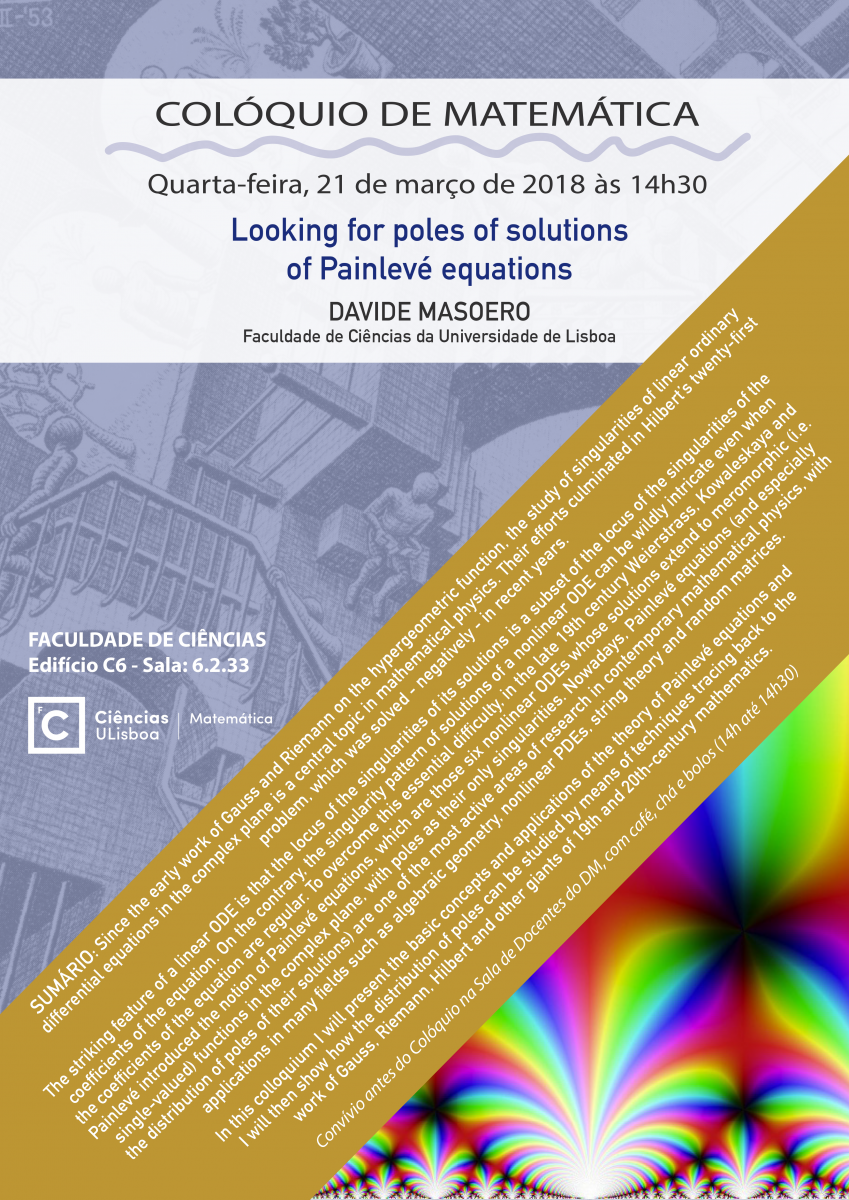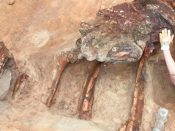Por Davide Masoero (Faculdade de Ciências da Universidade de Lisboa).
Sumário: Since the early work of Gauss and Riemann on the hypergeometric function, the study of singularities of linear ordinary differential equations in the complex plane is a central topic in mathematical physics. Their efforts culminated in Hilbert's twenty-first problem, which was solved - negatively - in recent years.
The striking feature of a linear ODE is that the locus of the singularities of its solutions is a subset of the locus of the singularities of the coefficients of the equation. On the contrary, the singularity pattern of solutions of a nonlinear ODE can be wildly intricate even when the coefficients of the equation are regular. To overcome this essential difficulty, in the late 19th century Weierstrass, Kowaleskaya and Painlevé introduced the notion of Painlevé equations, which are those six nonlinear ODEs whose solutions extend to meromorphic (i.e. single-valued) functions in the complex plane, with poles as their only singularities. Nowadays, Painlevé equations (and especially the distribution of poles of their solutions) are one of the most active areas of research in contemporary mathematical physics, with applications in many fields such as algebraic geometry, nonlinear PDEs, string theory and random matrices.
In this colloquium I will present the basic concepts and applications of the theory of Painlevé equations and I will then show how the distribution of poles can be studied by means of techniques tracing back to the work of Gauss, Riemann, Hilbert and other giants of 19th and 20th-century mathematics.






















